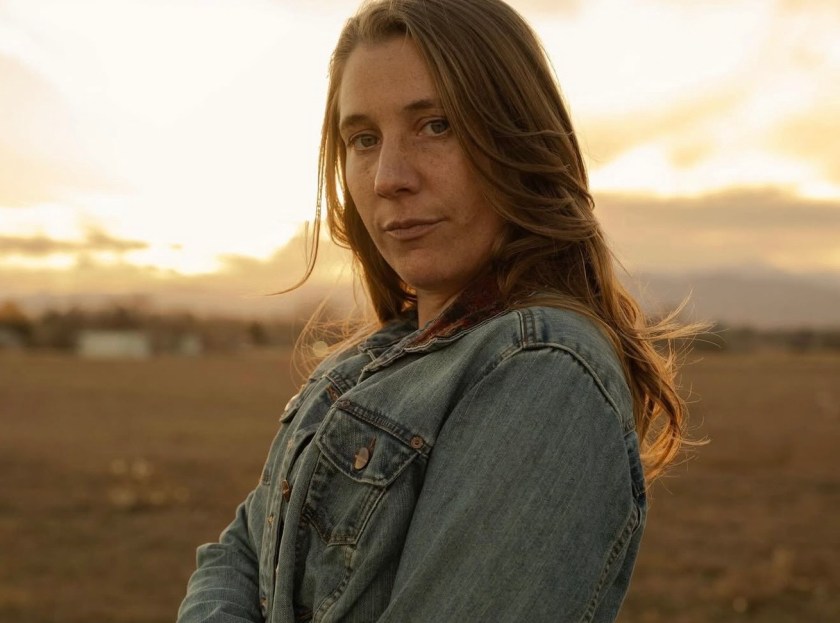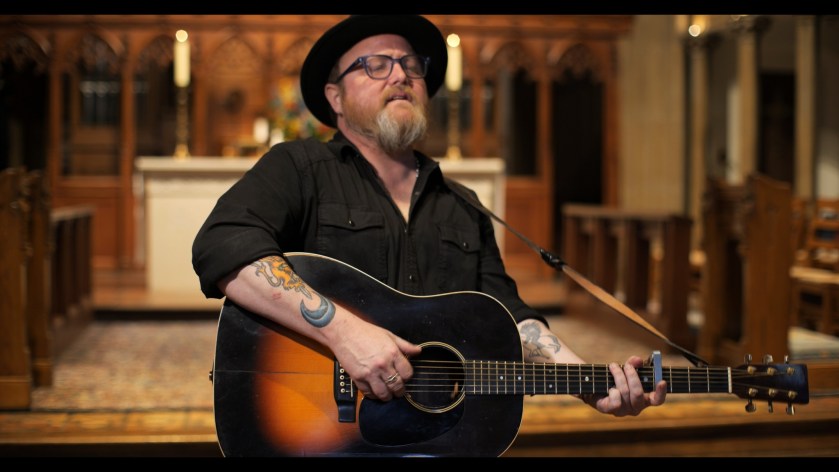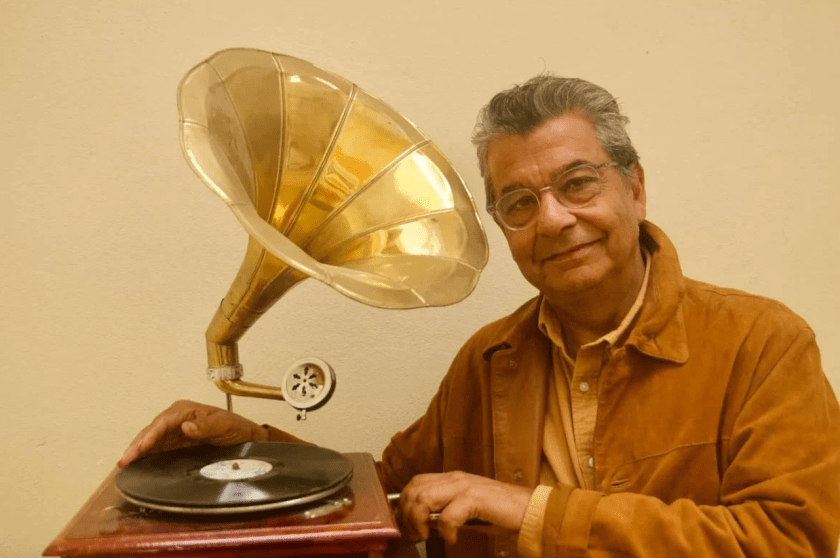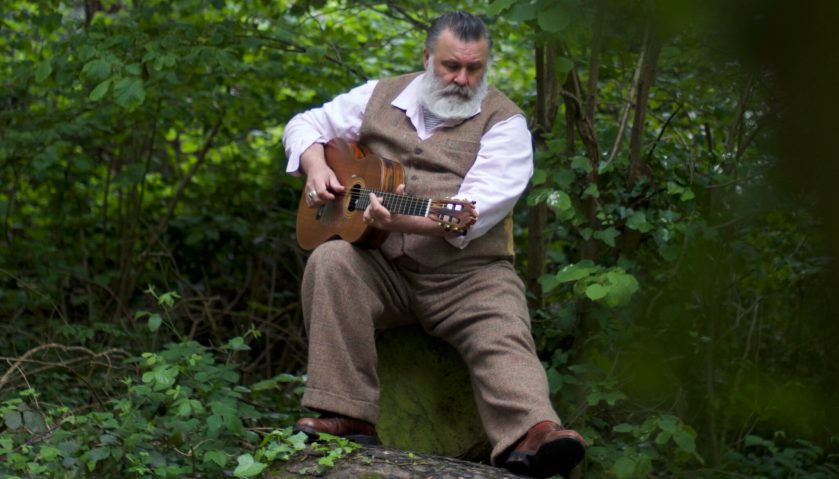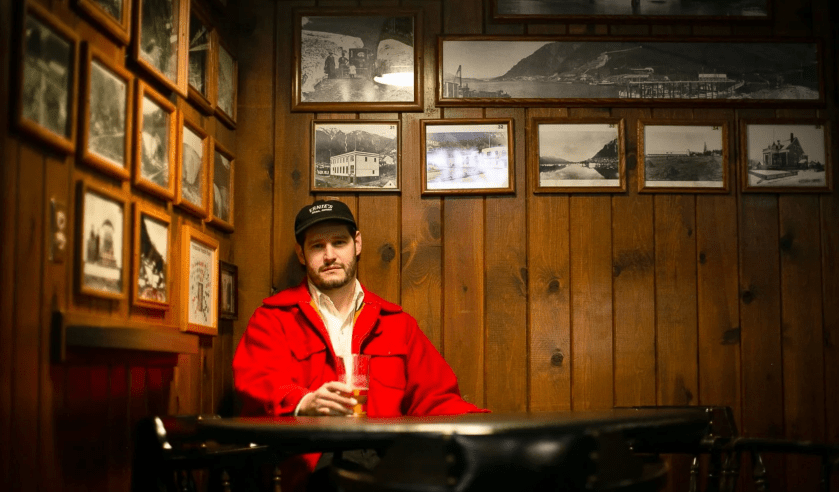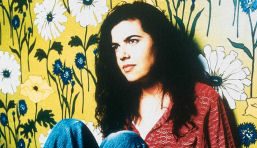It is not easy to come to terms with deep wounds. On “Tango,” Jo Fuller describes a difficult relationship where she felt doubted.
“This person just made me feel lesser than,” said Fuller. “It was complex in that they tried to disguise that view of me, or maybe they didn’t want to have that view of me but they did. But I could just feel it.”
Not surprisingly, Fuller was never able to get an apology. That often isn’t something that easily springs forth from people who have disappointed us in the first place. But if that result isn’t particularly remarkable, Fuller’s success in achieving closure is. She realized that instead of confronting someone else, she needed to look inward and confront her emotions and her role in the situation. If that sounds like someone beating themself up, it’s not. “Own your hand and I’ll own mine,” she sings, stating “it takes two to tango.”
It’s the nuance in Fuller’s exploration of emotion that makes Wood of the Grain such an impressive and mature debut.
“I needed to see how I was participating in letting them have such a big impact on my emotional world” said Fuller. “That’s enough for me. Realizing my role because it takes two to tango. That was all the closure I wound up needing.”
Fuller approaches herself and her emotions in many ways on the album. Sometimes, like on “Paper Tiger,” a direct confrontation of a thought pattern is needed. It’s the anthem of a woman who is beyond being weighed down by negative
“Can I stalk the streets of my mind? Can I begin to make conversation with the parts of myself that I’m scared of?” asked Fuller, referring to her lyrics. “Maybe these are parts of myself or recurring thoughts and feelings that I can come to know.”
It’s that idea that proved to be the most powerful on her album. Fuller said she struggles with anxiety but I had enough experience with the subject that I didn’t need much of an explanation on how that feels. Admitting that our world is a bit on fire right now, Fuller didn’t set out to eradicate the feeling. Instead she practiced setting boundaries within herself.
“You can give yourself permission that it’s right and it’s rational and you can feel it,” said Fuller. “And you can also give yourself permission that if it feels debilitating, that there are also steps to take that might alleviate the amount to which you’re feeling that.”
“Welcome to the Guest House, It’s the Best House” is a fresh application of a centuries old idea, one featured in a Rumi poem. “Come sit with me dear,” Fuller sings, inviting her emotions in for something between a heartfelt conversation and a negotiation. She describes the process as having made her emotions seem whole and tangible for the first time. “I’m sorry darling/I didn’t know it was okay to feel this way,” she sings.
“There’s a lot of sadness for the way I have historically related to these feelings so I apologize,” said Fuller, meaning she apologized to her feelings. “I don’t want to feel anxiety. I don’t want to feel fear. I don’t want to feel loneliness. Contrary to that initial impulse to push away, it’s an invitation.”
Wood of the Grain is an album about “development in context,” Fuller says, a recognition of pain and a path forward outlined by “the wisdom of bygone thinkers.”
“The things that we consider broken and non ideal about ourselves. They’re not just random flaws, they are things that developed in response to something in our context. They’re actually worthing of our understanding or curiosity. They’re adaptations,” said Fuller. “How pervasive that ‘I’m broken, I’m fundamentally flawed’ feeling is in our culture is a product of how quickly we pathologize something instead of getting curious about something, honoring it. It doesn’t mean we have to believe it. It doesn’t have to rule our lives. It sure as hell is not brokenness.”
The album ends on a satisfying and beautiful note, a love letter to those who supported her through the struggle.
“It’s provided me with the soil, the fertile ground of being able to get through some really hard things,” Fuller said of the feeling of community around her. “A lot of this album is aspirational but it’s becoming reality for me. I struggle with anxiety but I’m doing it. It’s pretty exciting what it’s making space for in my life, including exploring my relationship to God and a higher power.”
Pixar has proven that with bright colors and a smart script, personifying emotions can be extremely effective. I’m not optimistic we get anything close to this mature and impactful for “Inside Out 3.” For those wishing for a version of the franchise aimed at adults, Wood of the Grain will more than do.
If you’re seeing this before Friday, only our partial episode with Jo Fuller is available as some of her music remains unreleased. For now, enjoy one song and Jo’s music choice along with her interview. Later we will add two more songs. Check out our guest at https://www.jo-fuller.com/ and my radio station at https://www.wusb.fm/
